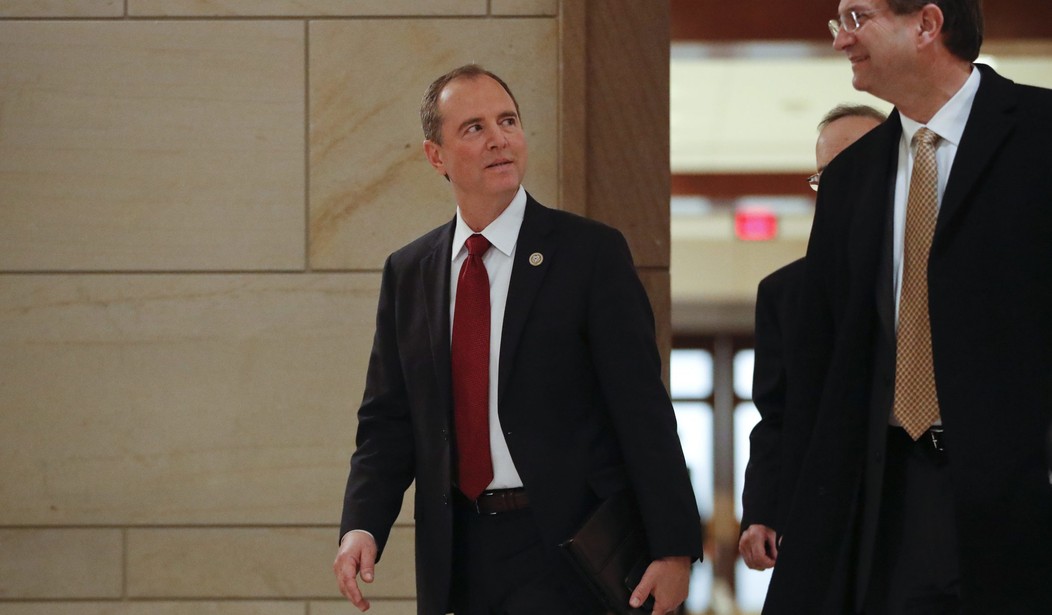WASHINGTON — A week after allowing the release of a memo from House Intelligence Committee GOP staff alleging FISA abuse in the surveillance of campaign advisor Carter Page, President Trump decided to block the declassification of a rebuttal memo from committee Democrats.
The memo prepared by aides for Chairman Devin Nunes (R-Calif.) states that October 2016 FISA application to the court, as well as “any of the renewals,” the memo continues, didn’t “disclose or reference the role of the DNC” or “any party/campaign in funding Steele’s efforts, even though the political origins of the Steele dossier were then known to senior DOJ and FBI officials.”
Ranking Member Adam Schiff (D-Calif.), who has viewed the classified documents behind the memo along with Intelligence Committee member Trey Gowdy (R-S.C.), countered afterward that “the FBI did include information about a potential political bias” and “did set out information about who had provided the support for Christopher Steele.”
But the Democrats saved their main fire for Nunes’ nearly four-page memo with their 10-page rebuttal memo.
The House Intelligence Committee committee unanimously voted Monday to release the Democrats’ rebuttal, sending that memo to the White House for a five-day review.
Schiff tweeted during the review period:
Have you seen the new GOP hashtag? It’s quite a doozy:
ReleaseTheMemoNoNotThatMemoInTheInterestofFullTransparencyNotThatMuchTransparencyWhatDoWeDoLetsHaveAParade
— Adam Schiff (@RepAdamSchiff) February 7, 2018
This evening, the administration released a letter from White House Counsel Don McGahn stating that the Democrats’ memo was sent to the Office of the Director of National Intelligence and the Justice Department, and the DOJ “identified portions of the February 5th memorandum the disclosure of which it believes would create especially significant concerns for the national security and law enforcement interests.”
The DOJ and FBI also, on national security grounds, objected to the release of the Nunes memo, which Trump approved for release.
“Although the president is inclined to declassify the February 5th Memorandum, because the Memorandum contains numerous properly classified and especially sensitive passages, he is unable to do so at this time,” McGahn wrote. “However, given the public interest in transparency in these unprecedented circumstances, the president has directed that Justice Department personnel be available to give technical assistance to the committee, should the committee wish to revise the February 5th memorandum to mitigate the risks identified by the department.”
“The president encourages the committee to undertake these efforts,” he added. “The executive branch stands ready to review any subsequent draft of the February 5th memorandum for declassification at the earliest opportunity.”
Intelligence Committee member Rep. Eric Swalwell (D-Calif.) told CNN he was “skeptical” about the White House rationale and wants to talk with the Justice Department next week.
“The president has been consistent in this investigation only in his obstructive behavior,” Swalwell said, adding that the Dems wanted their memo reviewed by the DOJ whereas the committee GOPs did not want to work with the Justice Department on identifying and redacting potential national security issues in their memo.
Now, he said, committee Democrats will want to hear directly from the Justice Department about their issues with the memo, or if they came under pressure from Trump to keep the memo classified. “I trust the department; I don’t trust the president,” Swalwell said.
Senate Majority Leader Chuck Schumer (D-N.Y.) called Trump’s “double standard when it comes to transparency …appalling.”
“The rationale for releasing the Nunes memo, transparency, vanishes when it could show information that’s harmful to him,” Schumer added. “Millions of Americans are asking one simple question: what is he hiding?”
Trump’s decision could be overridden by a vote in the full House, which would have to meet in a rare secret session to consider the motion. The secret session vote has only been used by the lower chamber six times in history.
UPDATE 10:20 p.m. EST: Nunes issued a statement saying that he “had warned that the Democratic memo contains many sources and methods,” and while “Schiff pledged to seek the input of the Department of Justice and FBI regarding the memo’s public release… it’s no surprise that these agencies recommended against publishing the memo without redactions.”
“Intelligence Committee Republicans encourage the minority to accept the DOJ’s recommendations and make the appropriate technical changes and redactions so that no sources and methods are disclosed and their memo can be declassified as soon as possible,” Nunes added.
In his own statement, Schiff said that “after promising to treat the Democratic response in precisely the same way, the White House now seeks to have the Democratic memo sent back to committee and revised by the same majority that produced the flawed Nunes document to begin with.”
“The Democratic members of our committee take seriously the concerns of the DOJ and FBI, which is why we both urged the majority against this course in the first place and why we provided our document to the DOJ and FBI for vetting even before it was voted out of committee,” Schiff said. “We will be reviewing the recommended redactions from DOJ and FBI, which these agencies shared with the White House, and look forward to conferring with the agencies to determine how we can properly inform the American people about the misleading attack on law enforcement by the GOP and address any concerns over sources and methods.”









Join the conversation as a VIP Member